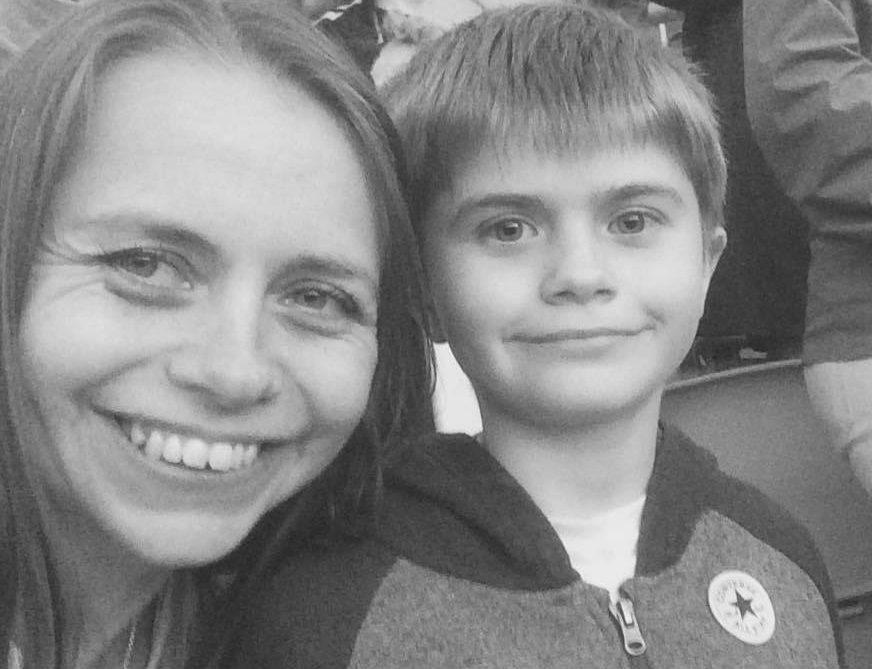
I SURVIVED TWO TERROR ATTACKS IN THREE MONTHS, THEN FEAR CONSUMED ME
I looked out into the crowd and saw thousands of hopeful faces staring back at us.
I was on stage as part of the Manchester Survivors Choir during the city’s Manchester Together – With One Voice event, marking the first anniversary of the terrorist attack on 22 May 2017.
But as soon as we started singing Andra Day’s Rise Up, my 11-year-old son, Jake, walked over to me with tears in his eyes. He was overcome with emotion and couldn’t face the performance alone.
So I hugged him tight, then we both continued singing with my arm over his shoulder.
It was an incredibly emotional day after a difficult year, but we were there to show the world that we weren’t victims. And that no one will dim our shine.
As a social worker who was in the Manchester Arena on the night of the bombing, exactly seven years ago today, I started this choir because I wanted to make a difference.
I’ll never forget that fateful day. But I almost wasn’t there.
It was around 4:30 in the afternoon when my husband’s work was offered two tickets to see Ariana Grande at the Manchester Arena. I didn’t know anything about her or any of her songs, but Jake – who was 10 at the time – did, so we asked if he wanted to go to his first ever concert and he excitedly agreed.
So we got in the car and drove from Lancaster – where we live – to Manchester.
Before the concert even started, I wanted to use the loo but Jake didn’t want to come into the women’s bathroom with me. A mother passing by overheard and offered to mind him while I popped in, which I thought was very kind.
When we got to our seats in the middle of the arena, the concert itself was great. It finished around 10:30pm, then people began filing out.
Jake and I left through a side exit rather than the main foyer and thought nothing of it. Then suddenly, just as we got outside, we noticed an influx of young people screaming while running out.
We had no idea what it was, but we had to walk around the arena to get back to our car. That’s when we saw people sheltering under archways, who told us that they thought the commotion was somebody with a gun or some sort of explosion.
Scared for our lives, we waited for a short moment before we decided to just run to the car and not look back. Thankfully, we made it and started on the drive home to Lancaster.
But just as we were leaving the city, we noticed countless emergency service vehicles speeding to the scene. I still didn’t know what was going on.
It wasn’t until we got home over an hour later that I realised the gravity of the situation. We’d later be shocked to learn the full details – that a terrorist had walked into the main foyer of the arena and blown himself up with a home-made bomb.
Tragically, 22 people died and over 800 people were hurt – physically or psychologically. I couldn’t believe it.
In the aftermath of the attack, people remarked how lucky Jake and I were to escape without a scratch – and I agreed at the time. In fact, a part of me didn’t want to access any support services because I thought there were people more ‘deserving’ of them.
In the years since the attack, I set up Bee the Difference through the National Emergencies Trust, which helped to provide evidence about the gaps in services for young people after terrorism incidents. It’s through this project that I realised the scale of disparities between support services.
For example, some felt dismissed by their GPs, dropped after checking out from hospital, or were on months-long mental health waiting lists.
As a result of this evidence, the Home Office actually used it to look at how they fund or support survivors of terrorism in the future.
As for my own future – and Jake’s too, who is now 17 years old – we still feel trepidation when we go into large crowds. In fact, the first concert we went to after the attack was Ed Sheeran, with the choir, actually.
Our sense of safety was completely rocked that year with the two terrorist incidents we experienced, but we’re not down and out. We refuse to let those nights define us.
I hate the thought that there could be another terrorist attack tomorrow and we still haven’t properly listened to the concerns of previous survivors.
I just hope that the work we’ve done in this area can help. It’s the least we can do to honour the people we’ve lost.
Dr Cath Hill is supporting Social Work England’s new campaign called Change the Script, which urges the entertainment industry to change the way social workers are depicted in TV and films.
As told to James Besanvalle.
Do you have a story you’d like to share? Get in touch by emailing [email protected].
Share your views in the comments below.
Get your need-to-know latest news, feel-good stories, analysis and more by signing up to Metro's News Updates newsletter
2024-05-22T08:39:37Z dg43tfdfdgfd